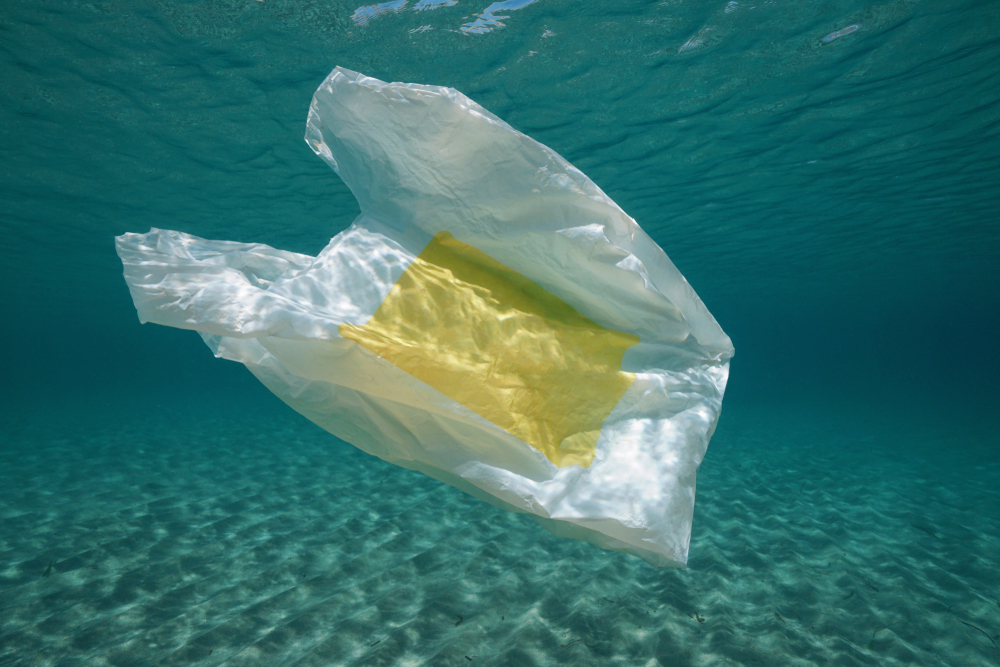GreenBiz, By Deonna Anderson, February 19, 2021
The plastic bag has become a nemesis of the environmental movement. About 4 trillion single-use plastic bags are used across the globe each year. And according to Waste Management, about 14 billion plastic shopping bags are used in the U.S. alone annually — and less than 10 percent of them are recycled.
Back in July, Closed Loop Partners’ Center for the Circular Economy teamed with retail giants Walmart, CVS and Target to create the Consortium to Reinvent the Retail Bag — and that’s exactly what they’re trying to do, with the help of innovators around the world.
Since July, the number of consortium partners has grown to 13 retailers representing over 50,000 stores. Dick’s Sporting Goods, Dollar General, Kroger, Albertsons Companies, Hy-Vee, Meijer and Walgreens are among those new partners.
After receiving more than 450 applications for its Beyond the Bag initiative, the consortium has chosen nine winners, each of which will receive a portion of $1 million and take part in the next phase of the effort.
“The Beyond the Bag solution search took place during a global pandemic, so I was really happily surprised at how engaged innovators and entrepreneurs around the world were,” said Kate Daly, managing director of the Center for the Circular Economy.
During the complex search, the consortium asked for a lot of information from the applicants — about the environmental impact and how their systems work.
We’ve really learned that, in order to advance systemic change, there are three steps: innovate; test; and then scale.
In the next phase of the initiative, winners either will be invited to join the Circular Accelerator, a six-month mentorship program where they will work to refine their solutions, or they’ll begin product testing to improve performance, customer experience and other aspects of their proposed solutions.
“We’ve really learned that, in order to advance systemic change, there are three steps: innovate; test; and then scale,” Daly said. “Now is the moment where we can take these nine winners, and really identify what’s next for each of them in order to help them to align with retail operations in North America so that we can start to drop some of these solutions into retail stores.”
The winners fit into three categories — reuse and refill, enabling technology, and innovative materials — that tackle different parts of the plastic waste problem. Here’s a summary of the organizations tapped for each.
Reuse and refill
- ChicoBag eliminates a common pain point for consumers: remembering your reusable bag. Its service enables customers to borrow bags on-site as part of the sharing economy.
- Goatote’s kiosk system allows consumers to access clean, reusable bags anywhere a kiosk is found.
- Returnity designs and manufactures reusable shipping and delivery bags and boxes for products already on the market, and provides the supporting e-commerce and delivery packaging system that power their use.

Innovative materials
- Domtar is developing a new bio-based, recyclable material of 100 percent cellulose fiber, but with stretchable and more durable properties.
- PlasticFri transforms agricultural waste, non-edible plants and other renewable resources into valuable bio-based products. Its starch-based compostable bag offers an alternative for consumers.
- Sway replaces traditional plastic with a seaweed-derived material. Its bags are bio-based and designed to be carbon negative.
Enabling technology
- Eon is a leader in internet of things (IoT) technologies. It created the CircularID protocol, which facilitates a transparent tracking system to understand how bags are being used across the value chain.
- Fill it Forward created a tag and app that connects to the reusable bag consumers already own, allowing them to track environmental impact, earn rewards and give back to charitable projects.
- SmartC, a solution co-created by 99Bridges and Envision Charlotte, is powered by IoT to incentivize shoppers with rewards in a fun and engaging way every time they reuse their shopping bags.
Two years ago, Envision Charlotte created the concept for SmartC and took the idea to Cisco, one of its technology partners, “to talk about the sensor technology and edge processing piece of the project,” wrote Amy Aussieker, executive director of Envision Charlotte, in response to emailed questions for this story.

Since that time, Cisco has introduced Envision to IT company 99Bridges to create the architecture needed for the system and the two organizations have developed the initial framework. “While the SmartC concept was finished, we paused implementation or piloting it because of COVID, since some retailers stopped allowing people to bring in their own bags,” Aussieker wrote.
As the COVID-19 pandemic continues to be addressed and the SmartC technology moves to the next phase of the Beyond the Bag initiative, Aussieker said the “ideal outcome would be a pilot program here in Charlotte with the participating retailers so that we could really test its adoption rate and measure the impact via how much (less) plastic is going to the landfill.”
Daly of the Center for the Circular Economy noted that SmartC and the other eight winners are very attuned to customer needs and are studying the potential environmental impact of their own solutions.
“Now is the perfect time for Envision Charlotte to participate in this program due to our strategy around Charlotte’s transition to the circular economy — plastics is one of the highest priorities,” Aussieker said. “This is an exciting opportunity because plastic bags cannot be curbside-recycled — so eliminating these bags would reduce the total amount going to the landfill every year.”







